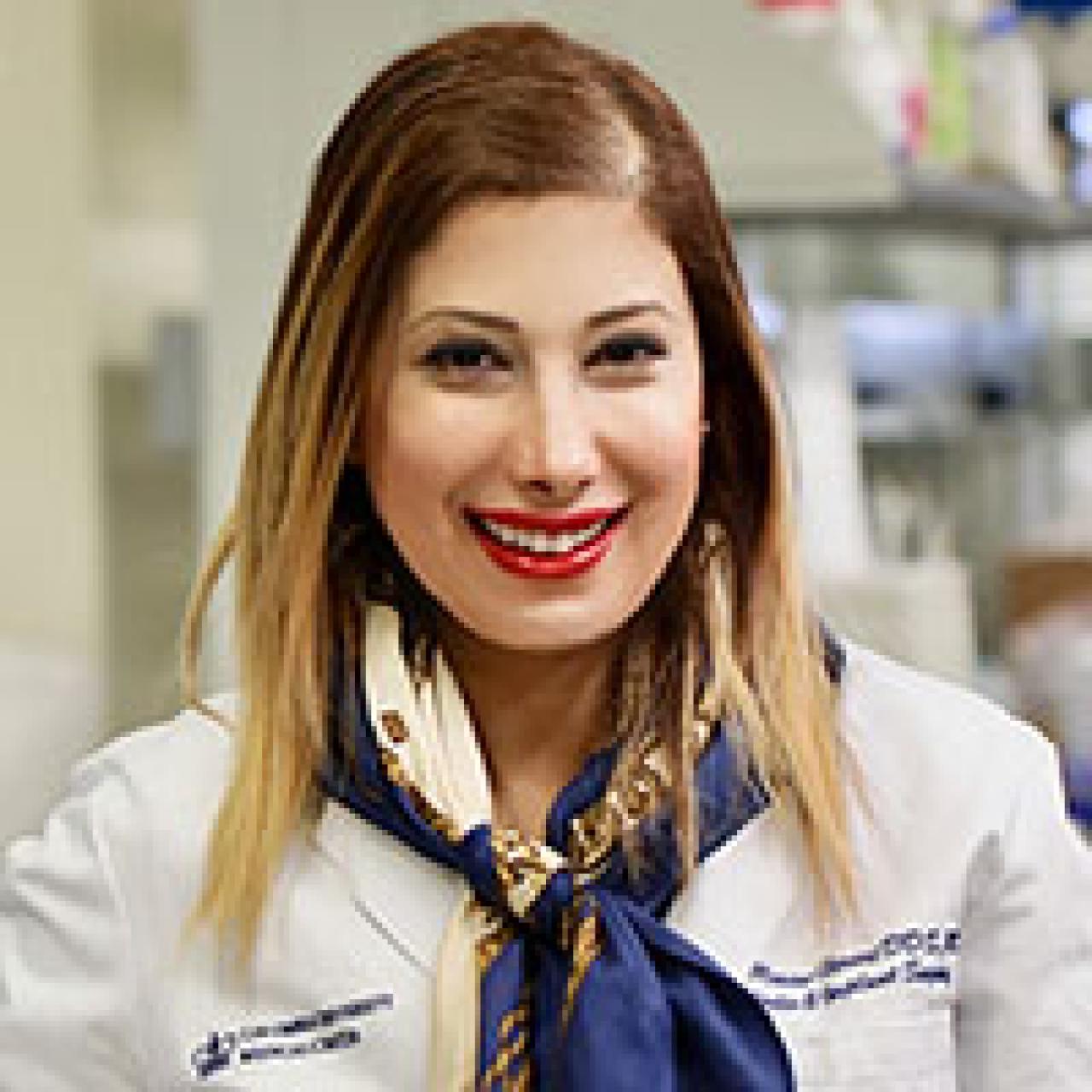Researchers at Columbia University College of Dental Medicine have developed an exosome-based platform, "safeEXO-Cas," that significantly enhances the delivery of CRISPR/Cas9 genome editing components to specific cells and tissues. CRISPR/Cas9 is a unique technology that enables geneticists and medical researchers to edit parts of the genome by removing, adding or altering sections of the DNA sequence. The study, published today in Theranostics, demonstrates the potential of this innovative platform to revolutionize gene therapy and precision medicine.

Dr. Fatemeh Momen-Heravi
The research, led by Dr. Fatemeh Momen-Heravi, founder and director of the head and neck cancer research group at the Herbert Irving Comprehensive Cancer Center, and first-authored by Dr. Sunil Dubey, an associate research scientist at Columbia University Mailman School of Public Health, uses exosomes - naturally occurring vesicles - as

Dr. Sunil Dubey
efficient, non-immunogenic vehicles to deliver CRISPR/Cas9 components. Exosomes have shown promise in overcoming the limitations of current viral and non-viral delivery methods, such as immunogenicity, limited cargo capacity, and off-target effects.
Dr. Momen-Heravi emphasized the platform's potential impact on treating genetic diseases. "By providing a targeted, efficient, and safe delivery method for CRISPR/Cas9, we can potentially treat a wide range of genetic disorders. The ability to customize exosomes for specific tissues opens new avenues for precision medicine," she said.
Dr. Akiva Mintz, a translational researcher at the Department of Radiology at Columbia University Medical Center, collaborated on the study. The interdisciplinary effort underscores the importance of combining expertise from different fields to achieve groundbreaking results.
The researchers demonstrated that safeEXO-Cas can deliver both CRISPR/Cas9 components, including single guide RNA and single-stranded DNA templates, which have the potential to be manipulated to become promising drug delivery vehicles for on-demand in vitro and in vivo gene editing. Notably, they engineered safeEXO-Cas to express the alpha6 integrin, enhancing its affinity for lung epithelial cells and enabling efficient gene editing in lung tissue with minimal side effects.
"Our study showcases the safeEXO-Cas platform as a scalable and efficient method for targeted gene editing," said Dr. Momen-Heravi. "We engineered exosomes to express tissue-specific moieties, increasing their uptake by target cells and minimizing off-target effects. This represents a significant step forward in the field of gene therapy."The study's findings underscore the versatility and effectiveness of the safeEXO-Cas platform. In experimental models, the platform successfully edited the EMX1 gene in lung tissue without causing morbidity or significant immune responses. This breakthrough paves the way for further research and clinical applications, offering hope for patients with genetic diseases that currently lack effective treatments. The research was supported by the American Association of Cancer Research, Emerson Collective, and the R35 award from the National Institute of General Medicine.






